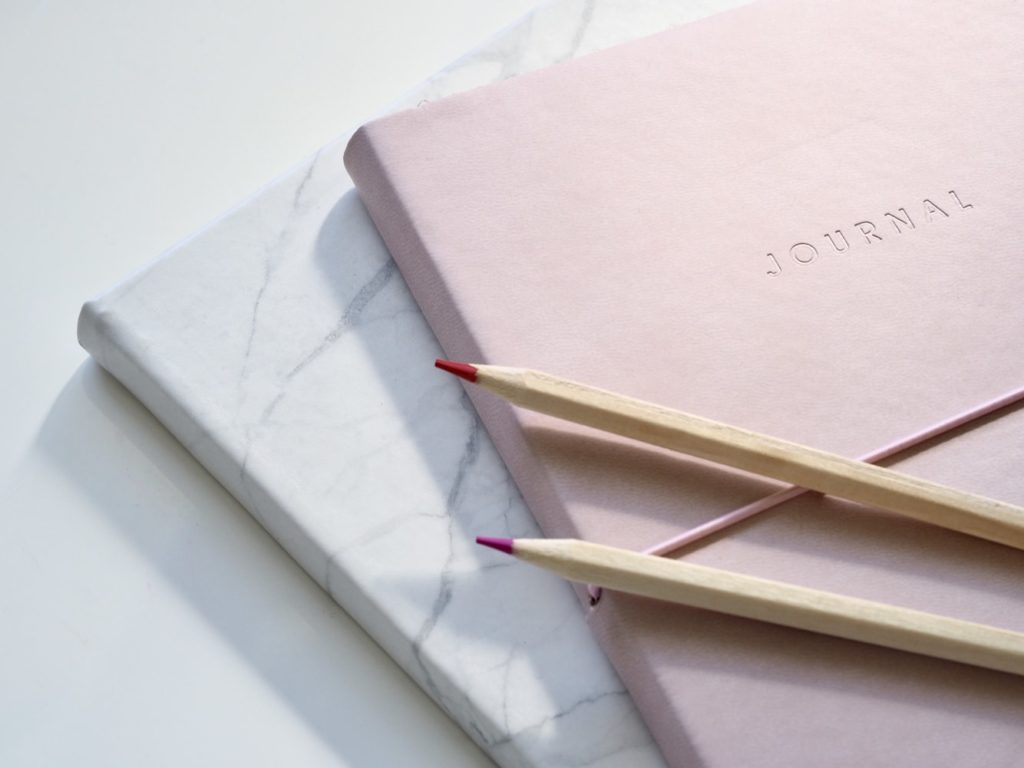Journaling has so many benefits for mental and emotional health. However, It can be intimidating putting your thoughts onto paper. Here is all you need to know for how to write journal entries for mental health.
Learning how to write journal entries is an effective skill for managing our mental and emotional wellbeing. There are so many benefits that help us process, reflect and heal from our day-to-day and life experiences. Although, knowing how to start and what to write can be tricky.
Your journal is your private place where you and your thoughts can be expressed freely. No one else can see or needs to know what you write in your journal. It’s for your eyes only! Here is everything you need to write effective journal entries.
Benefits Of Keeping a Journal
Have you ever heard the term “brain dumping“? This is where you literally, dump all the thoughts regardless of what they are into your journal. It is the practice of unloading all your random, jumbled and even nonsensical thoughts in a healthy way. Doing this in your journal allows you declutter your brain, then organize your thoughts and feelings.
In addition to brain dumping, there are heaps of other benefits that come with keeping a journal. Here are some of them:
- Remembering details, dates, memories and experiences
- Processing, reflecting and healing
- Developing creative ideas and goals
- Finding inspiration
- Tracking and controlling symptoms
- Improving mood & mental health
How To Write Journal Entries
Knowing how to write journal entries is a useful skill to have. It allows us to always have a way to process and work through are emotions. Additionally, writing journal entries allows us to maintain good mental health. Here is how you can write effective and helpful journal entries.
Choose The Right Journal
The right journal for you could be a notebook or a document on your computer. Whatever you want that helps you get your thoughts out. A computer is excellent because it is much faster and easier to read. However, tradition pen & paper is excellent for being thoughtful and it allows you to unplug.
You don’t have to limit yourself to just one type of journal either. Have two or three for all sorts of different purposes. You could have an affirmation journal, a feelings journal/diary, a daily/nightly thoughts or a gratitude journal. It’s all up to you!
There are tons of notebooks you can buy that come in packages too, so you can have a specific notebook for all your needs!
Date The Entry
Dating the entry of the journal can help you keep track as well as look back. When we don’t write the date we may forget what that journal entry was related to or what point of life we were in when we wrote it. Doing this will help you remember.
Write Truthfully
This is important, write truthfully. At the end of the day your journal is for your eyes only, so don’t hold back. Use it to let out and unload all your deep, dark secrets, thoughts and feelings. Doing this will help you feel lighter and ensure that you’re being reliable for yourself.
Being truthful, especially with yourself, will help keep you in check. Additionally, it’ll help you process, reflect and improve your overall wellbeing.
Go Into Detail
Write down details. This means use times, locations, people, feelings, even down to what you were wearing. This helps keep the memories alive and active. It could help you identify triggers or even allow you to break through from traumatic experiences.
Get Emotional
Just like writing down details, get into your feelings. Remember this is your private, personal space, so don’t be scared to go deep. Getting into your emotions will allow you to process, reflect and even find solutions. If something upsets you, try to identify why, how, who and every other little thought that comes to mind. You might just be able to allow yourself to let go, forgive and move on from whatever hurt you.
Forget Limits
Don’t limit yourself. Your journal entries don’t need to be a certain length and they won’t all cure of fix your feelings. Instead write to unload, be grateful, document or any other reason you want. Write until your satisfied, that’s the most important thing when it comes to writing journal entries.
Stay Solution Oriented
The great thing about journaling is you can unload, declutter your mind and work through your problems. The important thing is to stay solution oriented. If you are writing to process, reflect and break through certain issues in your life, aim to find a solution that suits you best.
W.R.I.T.E
A great tip for learning how to write journal entries is starting with the acronym WRITE.
W – what topic
R- review/reflect
I – Investigate
T – time
E – exist
Using this as a base for your journal entries can allow you to process, reflect, remember, live freely.
When To Write Journal Entries
There is no specific time that a journal entry needs to be written. It is best to write when you feel like it. However, there are different benefits to writing in the morning VS at night.
Morning Entries
Writing in the mornings is an excellent way to start off your day. You can write affirmations, to-do lists and set intentions for how you’d like to go about your day. Even write in the mornings to ensure you go through the day with a light mental load.
Evening Entries
Writing in the evenings can be part of an effective wind-down routine. It allows you to process the day and let go of any baggage you’ve been carrying around. If something happened you can use this time to work through it and it may even improve your quality of sleep. Additionally, writing at night might allow you to express any creative ideas you have. Keep a journal by your bed, you might wake up in the middle of the night with an idea you want to remember.

Bottom Line
Knowing how to write journal entries helps us maintain our mental and emotional help. There are many different ways to write journal entries but it’s important to remember that it is 100% personal. There is no right or wrong. Write for yourself and unload all your thoughts, feelings and problems.
This is your private therapist that you don’t have to pay. Use it to affirm yourself or give yourself reassurance. Set daily intentions or write to process through emotional hardship.
